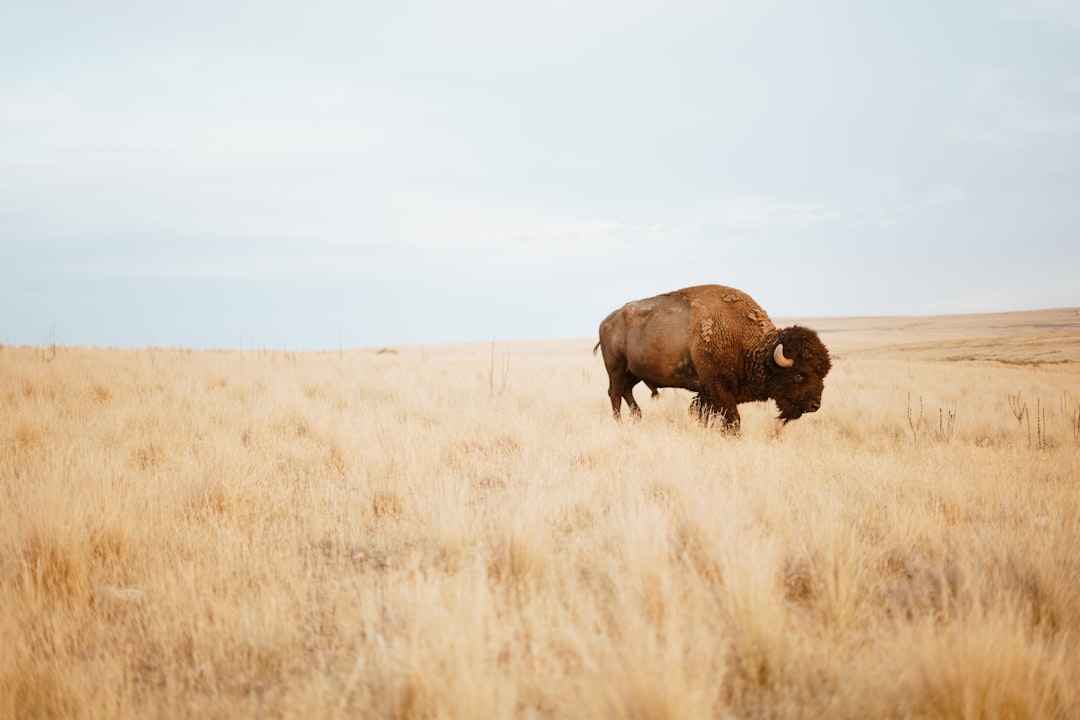Lose grazing animals, gain wildfires
Losing iconic grazers triggered a dramatic increase in fire activity in the world’s largest grasslands, forever altering these ecosystems. Can we use our knowledge of the past to plan a better future?
For millions of years, grazers have roamed nearly every ecosystem on the planet. However, during the late Quarternary period (50,000 to 6,000 years ago), we rapidly lost many of the planet’s largest and most iconic grazing animals, such as the woolly mammoth, giant bison, and ancient horses.
According to a recent study published in the journal Science, this loss triggered a dramatic increase in fire activity in the world’s largest grasslands.
Researchers compiled lists of large extinct animals and their dates of extinction across four continents. The data revealed that South America lost the most grazers (83% of all species), followed by North America (68%). These losses were significantly higher than in Australia (44%) and Africa (22%).
When they compared this to charcoal records that provide a historical record of regional fire activity across the continents, they found that not only did fire activity increase as these grazers decreased, but fire rates and severity were directly correlated to the rate of grazer loss.
In other words, the continents that lost the most grazers, North and South America, experienced more fire activity than the continents that experienced lower rates of grazer extinction, Australia and Africa.
“These extinctions led to a cascade of consequences,” said study co-author Allison Karp, a postdoctoral associate in the Department of Ecology & Evolutionary Biology at Yale University. “Studying these effects helps us understand how herbivores shape global ecology today.”
The researchers also studied ancient browser species - mastodons, diprotodons, and giant sloths, which foraged on shrubs and trees in wooded areas - which went extinct during the same period. Their loss had little impact on fire activity in woodland ecosystems.
Grasslands were forever altered by the loss of these grazers.
Grasses tolerant of grazing pressure were burned by the more frequent fires. Predator populations collapsed. Fruit-bearing trees, dependent on the grazers for seed dispersal, also went extinct.
The ecosystem adapted. New grasses and grazers emerged, but these findings highlight the important role of grazers in fire management and climate change.
While it’s “theoretically” possible to resurrect these extinct species, it’s more sensible to better manage, and appreciate, the species we have today.
Domestic cattle, bison, and other livestock and grazing animals play a vital role in the health of our planet. Well-managed, they can restore ecosystems and biodiversity, upcycle grasses humans can’t eat into bioavailable nutrition, reduce wildfire risk, and help us create a better planet for our future.
Calls to eliminate livestock are short-sighted and will cause more harm than good.
Additional reading:
Winter grazing can reduce wildfire size, intensity and behaviour in a shrub-grassland
Grazing Management to Reduce Wildfire Risk in Invasive Annual Grass Prone Sagebrush Communities
Benefits of cattle grazing for reducing fire fuels and hazard
Short documentary to watch:
“Too Close to Home explores the role of cattle in mitigating wildfire risk for surrounding urban communities. After witnessing firsthand how grazing can impact fire behavior, ranchers, researchers and municipalities have come together to collaborate on a series of pilot projects.”
Brand to enjoy:
Nose to Tail products include 100% grass-fed and grass-finished meat, all-natural grass-fed biltong (a traditional South African air-dried meat snack), small batch and sugar-free seasoning blends, and handmade, regeneratively-sourced beef tallow body care products. Check them out here and use the code REGENERATE for 10% off.
Twitter thread to read:
Disclaimer: The Regeneration Weekly receives no compensation or kickbacks for brand features - we are simply showcasing great new regenerative products.
If you have any products you would like to see featured, please respond to this newsletter or send an email to meg(at)soil.works
The Regeneration is brought to you by Wholesome Meats | Soilworks | Grassroots Carbon| Grazing Lands




